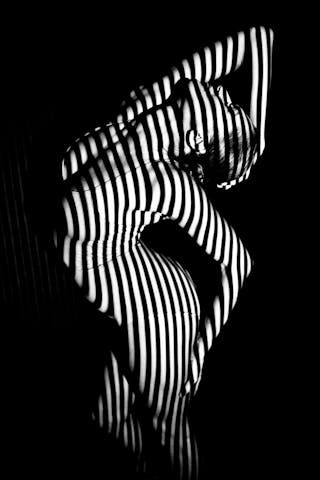I Didn't Know Abusive Same-Sex Relationships Existed Until I Was In One
Navigating the world of online dating can be thrilling, but it can also be a rollercoaster of unexpected experiences. From exhilarating first dates to disappointing ghosting, the journey is never dull. If you're looking to spice up your love life, why not consider exploring the swinging scene in San Antonio? Online dating for swingers can open up a whole new world of possibilities, and this guide is the perfect place to start. Let the adventure begin!
When we think of abusive relationships, we often picture them in heterosexual contexts. As a member of the LGBTQ+ community, I never knew that abusive same-sex relationships were even a possibility until I found myself in one. It's a topic that is rarely discussed, but it's a reality for many individuals in the queer community.
Explore the thrilling world of cuckold dating and unleash your fantasies by trying it out.
Realizing I Was in an Abusive Relationship
If you're looking for new cam sites to try out, consider checking out this list of sites similar to Stripchat for a fresh and exciting experience.
I met my partner through a mutual friend and initially, everything seemed perfect. They were charming, attentive, and made me feel special. However, as time went on, their behavior started to change. They became increasingly controlling and possessive, constantly checking my phone and demanding to know where I was at all times. I brushed it off as them just being concerned, but it soon escalated into verbal and emotional abuse.
Meet your match with BBW singles near you!
Recognizing the Signs
It took me a while to realize that I was in an abusive relationship. I had always associated abuse with physical violence, but the reality is that abuse can take many forms. It wasn't until a friend pointed out the signs of emotional manipulation and control that I began to see the situation for what it truly was.
The Cycle of Abuse
Abusive same-sex relationships often follow a similar cycle to heterosexual ones. There is the initial period of charm and affection, followed by the gradual escalation of controlling behavior and manipulation. This is often followed by an explosive incident, which may or may not involve physical violence, and then the cycle repeats itself. It's a pattern that can be difficult to break free from, especially when there are additional barriers such as societal stigma and lack of support.
Seeking Help
One of the biggest challenges in an abusive same-sex relationship is finding support. It can be difficult to talk about the abuse when there is a fear of judgement or disbelief from others. LGBTQ+ individuals may also face additional barriers such as a lack of awareness and resources specific to their community. It's important to seek out support from friends, family, or professionals who are knowledgeable and understanding of the unique challenges faced by queer individuals in abusive relationships.
Breaking Free
Leaving an abusive relationship is never easy, but it's especially challenging within the LGBTQ+ community. The fear of being outed, the lack of supportive resources, and the internalized stigma can all make it difficult to seek help and break free from the cycle of abuse. It's important to remember that there is support available and that you deserve to be in a healthy, loving relationship.
Moving Forward
It took me a long time to heal from the trauma of being in an abusive same-sex relationship. It wasn't easy, but with the right support and resources, I was able to move forward and reclaim my sense of self-worth. It's a journey that takes time, but it's possible to heal and find healthy, loving relationships within the queer community.
Conclusion
Abusive same-sex relationships are a reality for many individuals within the LGBTQ+ community. It's important to raise awareness and provide support for those who may be experiencing abuse. By breaking the silence and offering understanding and resources, we can help empower individuals to seek help and break free from the cycle of abuse. Remember, you deserve to be in a healthy, loving relationship, regardless of your sexual orientation or gender identity.
- https://sex-guide.timebombrecordings.com/posts/fifty-shades-freed-sex-scenes/
- https://online-dating.fu-direct.net/posts/sex-toys-for-couples-27-best-sex-toys-for-couples/
- https://dating-chat-room.campsupernow.com/posts/polyamory-and-nonmonogamous-dating-books-to-read-now/
- https://hookup-website.getweps.com/posts/the-22-best-sex-toys-for-women-and-people-with-vulvas-for-2024/
- https://flirting.thehottieandthenottie.com/posts/my-best-sex-ever-was-with-a-love-islander/
- https://hookupsites.campsupernow.com/posts/lesbian-sex-first-time-tips/
- https://hookup-website.getweps.com/posts/13-asexual-people-explain-what-things-can-turn-them-on/
- https://matchmaker-website.timebombrecordings.com/posts/best-genderaffirming-sex-toys/
- https://online-dating.thehottieandthenottie.com/posts/pansexual-meaning-and-definition-what-is-pansexual/
- https://chatting.themountaintopplay.com/posts/pandemic-diary-a-newly-single-woman-navigating-a-breakup/
- https://chat.themountaintopplay.com/posts/ann-summers-sale-13-of-the-best-sex-toys-to-buy-now/
- https://online-sex.thehottieandthenottie.com/posts/multiple-orgasms-6-best-sex-positions-for-climax/
- https://dating-blog.getweps.com/posts/transgender-men-answer-questions-about-sex-and-dating/
- https://local-personals.themountaintopplay.com/posts/covid-sex-risks-what-would-you-risk-to-have-sex-during-the-pandemic/
